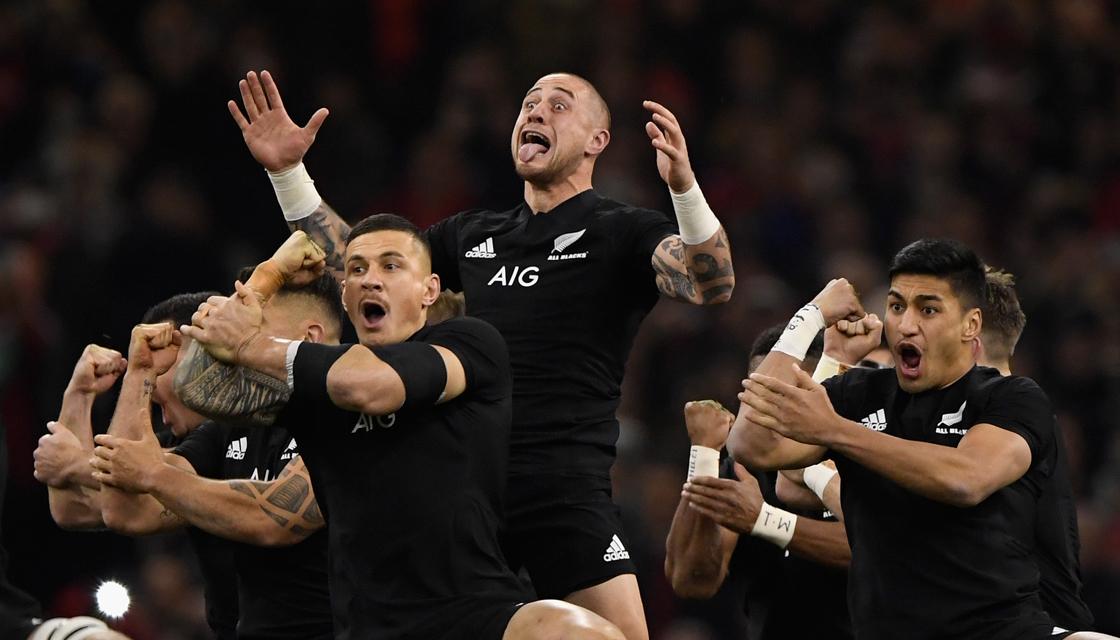A Māori language and cultural advisor says the Kardashian kids' haka - and other haka challenges like it on social media - treat the ritual like "a sing-along from a Disney movie" and are "desecrating all the great things happening" to restore Te Reo and Māori culture in New Zealand.
A clip of Kim and Kourtney Kardashian's children performing Ngati Toa's 'Ka Mate' haka was shared to Scott Disick's 24.4 million Instagram followers on Monday (local time).
The video, captioned "TikTok ya don't stop. Ain't got nothing on us!" showed the young kids attempting the traditional actions and words, before finishing the war dance with a pūkana.
Disick's post coincides with a #HakaChallenge trend on the rapidly growing social media app TikTok, although it's not clear if the Kardashian kids' performance was filmed and shared for that reason.
Māori cultural advisor Tania Ka'ai (Ngāti Porou, Ngāi Tahu) says the haka performed by the Kardashians and many other #HakaChallenge participants are disrespectful.
"Why is it people feel the need to give their interpretation of the haka on any form of social media - TikTok, Facebook, Instagram, whatever?" she told Newshub.
"None of them really seem to pay respect and homage to the haka - the least of which is the Kardashian children, in my view. Despite all the positive feedback about their pronunciation and execution, it still doesn't address the issue of why do it in the first place.
"It's still cultural appropriation."
Prof Ka'ai says one of the key issues with the haka challenge - including with the Kardashian children's rendition - is that most of those participating in it do not take the time to learn the significance of the tradition, nor the culture it comes from.
She points to the All Blacks' haka as an example of how it can be performed well and respectfully, even by Pākehā.
Former captain Buck Shelford is widely credited with having transformed the perception of the pre-game ritual from embarrassment to national treasure in the 1980s, teaching his fellow players the history and how to perform it properly for the first time while on tour in Argentina.
Now, the All Blacks employ a Māori cultural advisor and the players are all educated on the significance of the haka prior to performing it. New Zealand Rugby also has a memorandum of understanding in place with Ngati Toa, the iwi that owns the trademark for the 'Ka Mate' haka.
"What you see in terms of the modern day All Blacks is absolutely positive, favourable execution," Prof Ka'ai explained.

"You can see that they've practised and rehearsed it, and that time is given for them as a team to understand the haka… not just where their hands go or the actions, but the sentiment behind it."
She says the lesson for others to follow is be respectful of the culture - and if you can't be, don't do the #HakaChallenge.
"It's not a plaything, it's not a sing-along from a Disney movie, it's not a movie like Moana… It's a cultural composition. It has huge significance."
"It's easy: don't do it if you can't do it well, just give it a miss and choose something from your own culture… This kind of disrespect to the haka, you don't get joy out of it. It desecrates all the great things that are happening.
"I kind of want to put a positive spin on [the Kardashians' haka] and I don't want to attack children - but at the core, every way you look at it, it's cultural appropriation."
In stark contrast to Prof Ta'ai, Māori Council executive director Matthew Tukaki described the Kardashian children's haka as "beautiful" - though he admitted not everyone who's tried it has got it right.
"To be honest, I thought it was beautiful - a group of tamariki doing a haka with a pūkana at the end of it. As long as the intent is there [it's fine]. It certainly looked as though it was heartfelt," he told Newshub.
"That's not the case with others who have performed the haka... We do have some groups and people around the world that use the haka for other purposes, but this looked like a genuine go at it."





